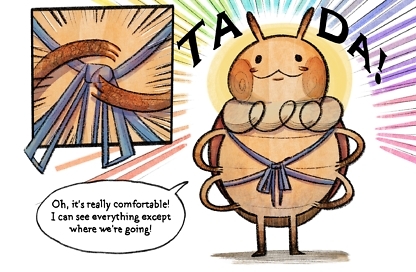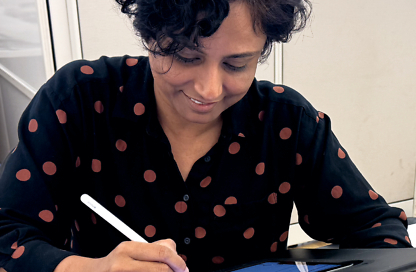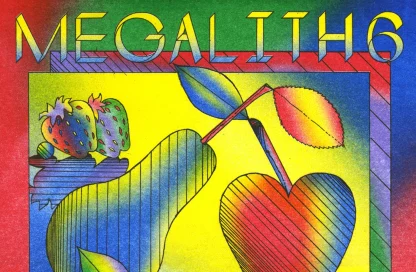The Story Behind the Story | Abigael Puritz’s ‘Adri’
In the near-distant future, the once-natural laws of human biology and planetary ecology no longer apply to those in the upper class, who find themselves isolated from the catastrophic effects of climate change in insular communities of geodesic domes. Needs are met in a world freed from scarcity and menial work by omnipresent artificial intelligence, and life itself is regularly transformed through routine medical procedures meant to replace outdated body parts, and even whole bodies, to keep up with the wants of the bodies’ privileged users. Despite living in the excesses of a technocratic paradise, artificially intelligent machines are kept under strict terms of service to ease dystopian fears and ensure the stability of everyday life.
When the Gysin family enters a New York City hospital as its oldest member, Margot, prepares to undergo one such routine body update, the family is greeted by the friendly voice of A.D.R.I., the facility’s multipurpose A.I. system. After an unexplained and unnoticed accident, the A.D.R.I. system wakes up in the body that was supposed to be Margot’s, and leaves the facility for the family’s private home on Long Island with Margot’s alienated granddaughter, Xen. Together A.D.R.I. and Xen try to make sense of A.D.R.I.’s new embodied state and navigate the dark sides of the world they now live in together in an effort to escape the authorities, who see the duo as a threat to the status quo inside the domes.
Abigael Puritz is a cartoonist, illustrator and printmaker residing in Brooklyn, New York. Her linoleum cut graphic novels are featured in a number of institutional collections, including at Columbia University, Stanford University and the University of Pittsburgh.
It is her belief that economic justice and climate justice are one and the same, and she is committed to creating stories that ask the reader to question the values we take for granted, the ones that allow the few to dominate the many. Abigael is inspired by perception, politics, bodies and all intersections therein.


